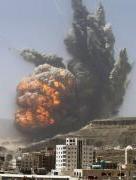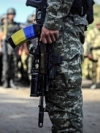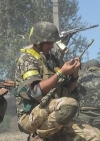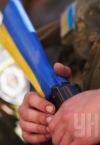The strikes were reported by Syrian state TV, Censor.NET informs citing AFP.
"The Russian air force in coordination with the Syrian air force targeted positions held by the Islamic State group in and around the city of Palmyra," state television said, citing a military source.
It said the strikes had destroyed "20 armored vehicles, three ammunition warehouses and three rocket launchers."
The Syrian Observatory for Human Rights, a Britain-based monitor, said the Palmyra strikes were launched overnight and killed at least 15 IS fighters and injured dozens more.
IS seized control of Palmyra in May and has realised international fears by destroying some of the most prized sites in the UNESCO World Heritage listed ancient city.
On Sunday, the group blew up the Arch of Triumph at the site, after previously razing two famed temples, including the 2,000-year-old Temple of Bel.
IS regards statues and grave markers as idolatrous, though it has smuggled and sold antiquities without qualms to raise money.
Experts say the group destroys ancient sites in part for propaganda value, grabbing headlines and attracting potential recruits.
Syria's army has advanced towards Palmyra from the west in recent months, but experts have warned any attack by regime forces could only speed up IS's destruction of its remaining treasures.
"The Russian air force in coordination with the Syrian air force targeted positions held by the Islamic State group in and around the city of Palmyra," state television said, citing a military source.
It said the strikes had destroyed "20 armored vehicles, three ammunition warehouses and three rocket launchers."
The Syrian Observatory for Human Rights, a Britain-based monitor, said the Palmyra strikes were launched overnight and killed at least 15 IS fighters and injured dozens more.
IS seized control of Palmyra in May and has realised international fears by destroying some of the most prized sites in the UNESCO World Heritage listed ancient city.
On Sunday, the group blew up the Arch of Triumph at the site, after previously razing two famed temples, including the 2,000-year-old Temple of Bel.
IS regards statues and grave markers as idolatrous, though it has smuggled and sold antiquities without qualms to raise money.
Experts say the group destroys ancient sites in part for propaganda value, grabbing headlines and attracting potential recruits.
Syria's army has advanced towards Palmyra from the west in recent months, but experts have warned any attack by regime forces could only speed up IS's destruction of its remaining treasures.
Source:http://en.censor.net.ua/n355025



























